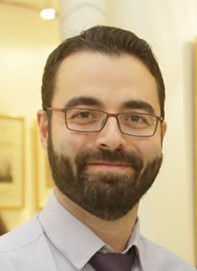Hagop A. Yacoubian
Lebanon

Hagop A. Yacoubian is an Associate Professor of Education at the Lebanese American University. He obtained his PhD in Secondary Education from the University of Alberta, Canada. His research focuses on the preparation of scientifically literate future citizens. He explores how the teaching of nature of science within the context of precollege science education could be used to empower future citizens to develop a critical mindset, engage in democratic decision-making processes, and be advocates of social justice. Yacoubian’s publications have appeared in various journals. He has co-edited (with J. Bazzul) a special issue of the Canadian Journal of Science, Mathematics and Technology Education on Rethinking Education for Citizenship (Routledge, 2015). He is the author of the book Critical Thinking at the Armenian Schools in Lebanon (Haigazian University Press, 2016) and the co-editor (with L. Hansson) of the volume Nature of Science for Social Justice published under the series Science: Philosophy, History and Education (Springer, 2020).
Advancing equity in science education requires creating experiences where learners engage with science in diverse ways. In this plenary talk, we look across differences to elaborate perspectives each of us brings as we contribute to the science education discourse. We look across different paradigms to elucidate how social justice as a common underpinning guides our work and positions us with respect to a shared vision of science education. Beginning with the understanding that science is embedded within social, cultural, and political systems, we elaborate how we envision science education contributing to the preparation of informed and engaged citizenry, who have a commitment to the ideals of social justice and democratic participation. Drawing upon our contextualized research projects, each of us elucidates how our research agendas work towards this vision. Chris’s research is contextualized within the primary level as she studies how plurilingual children participate in science and examines how classroom structures can facilitate young children’s agentic engagement in science investigations. Hagop’s research focuses on the preparation of scientifically literate citizens. He explores how students at the secondary level can be empowered to practice engaging in critical exploration of nature of science and science-based social issues. We come together across differences - in paradigms, research foci, contexts, and levels of schooling - to put forth the argument that social justice as a uniting theme has the potential of transcending boundaries. We zoom into our current projects to example the interplay of structure and agency, and discuss what we can learn from coming together across differences. We explicate the central values that underpin working towards social justice in science education practice and discuss how those values can be taken into consideration across the K-12 continuum.